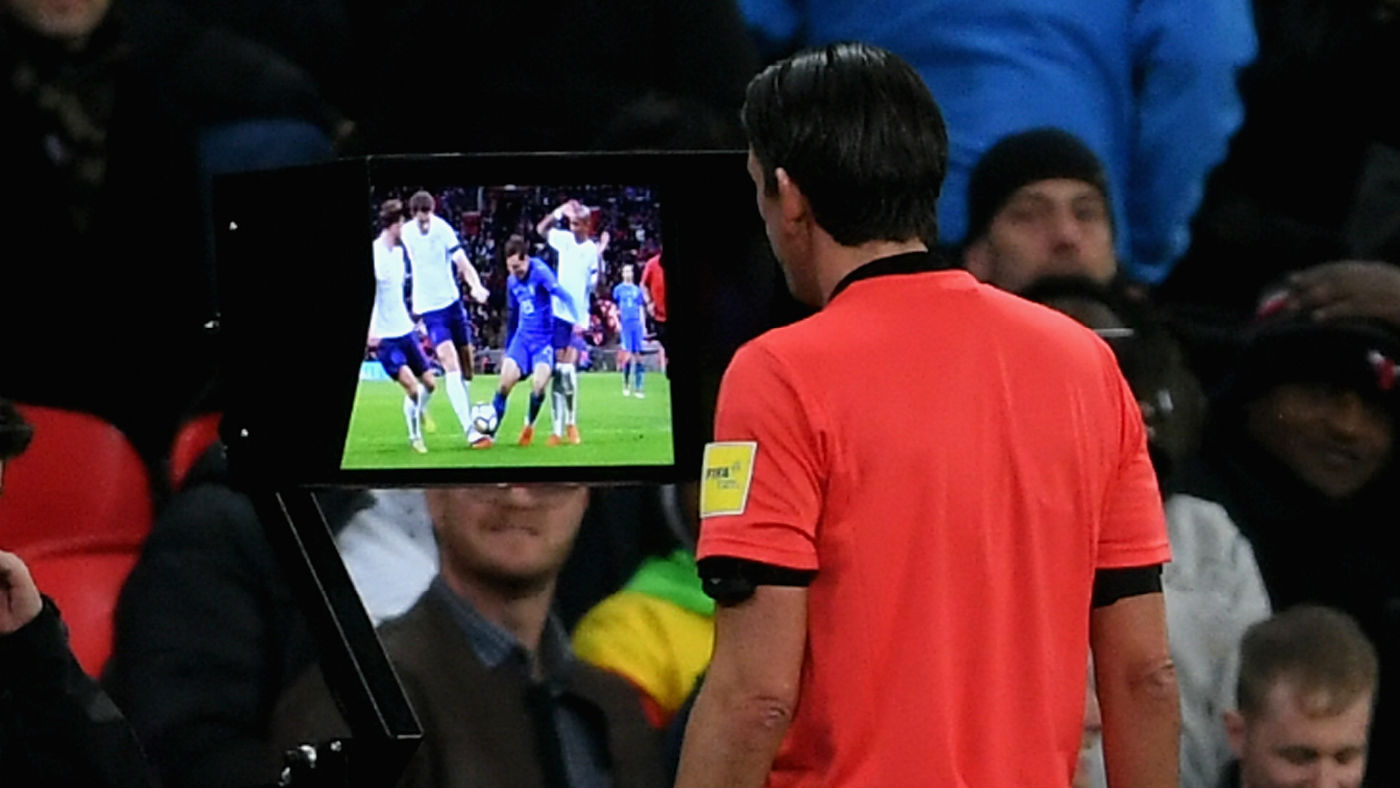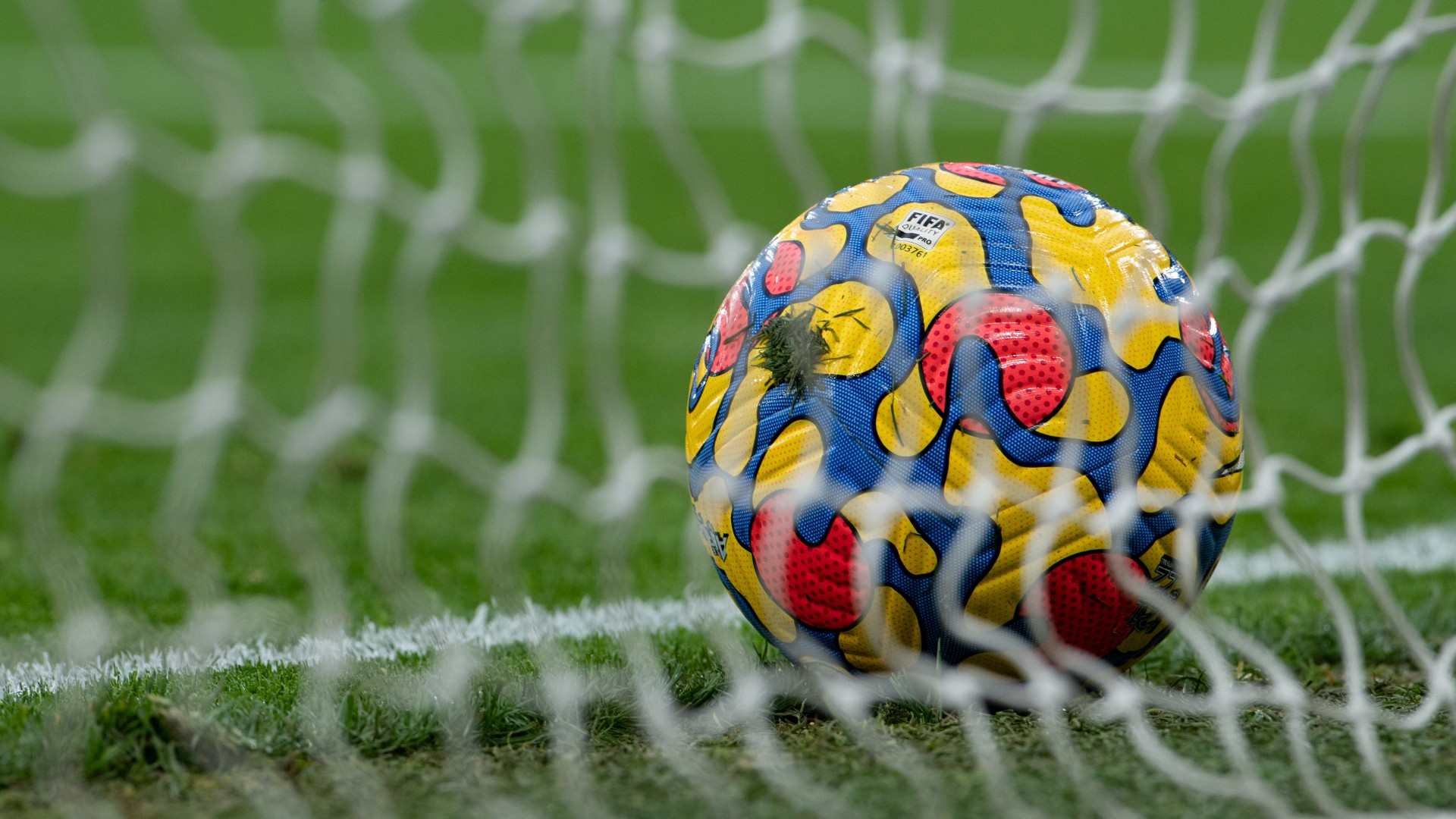Pros and cons of VAR in football
String of mistakes has put new technology under the microscope

A free daily email with the biggest news stories of the day – and the best features from TheWeek.com
You are now subscribed
Your newsletter sign-up was successful
The English football referees’ body has apologised to Arsenal after “human error” was to blame for an incorrect VAR decision that allowed Brentford’s equaliser to stand in last weekend’s Premier League game.
Former top referee Howard Webb, who is now in charge of Premier League officials, also apologised to Brighton after they had a goal disallowed for offside against Crystal Palace because VAR guidelines were wrongly drawn.
The twin controversies have put VAR “once again under the microscope”. The technology is facing scrutiny “from fans and managers alike”, said the Independent after a survey for Sky Sports found that 67% of fans believe VAR makes watching football less enjoyable.
The Week
Escape your echo chamber. Get the facts behind the news, plus analysis from multiple perspectives.

Sign up for The Week's Free Newsletters
From our morning news briefing to a weekly Good News Newsletter, get the best of The Week delivered directly to your inbox.
From our morning news briefing to a weekly Good News Newsletter, get the best of The Week delivered directly to your inbox.
1. Pro: can help referees
VAR was introduced to football in the early 2010s to minimise human error and help referees make the right decision. Standing for “video assistant referee”, it allows certain incidents to be reviewed by the main referee or by the VAR team, helping the correct decisions to be made.
The VAR team helps referees in four scenarios: goals and offences leading up to a goal; penalty decisions and offences leading up to a penalty decision; direct red card incidents and mistaken identity, explained Fifa. A wrong decision in these scenarios can swing a game, so supporters hope it will make the game fairer.
2. Con: disrupts the game
When there is a potential goal or penalty, the referee has to pause the match and review the footage on a screen. Sometimes, this process takes several minutes, which disrupts the flow of the match and means players stand around waiting, which can impair their performance. VAR is “taking the spontaneity away from the game”, wrote former Liverpool striker Stan Collymore for Caught Offside.
“It’s clear that football is fairer but it’s also clear that VAR has had an impact on the flow of the game,” David Elleray, a former Premier League referee, told Four Four Two. “Inevitably if you are going to stop the game to look at a replay, that involves stopping the flow of the game.”
A free daily email with the biggest news stories of the day – and the best features from TheWeek.com
3. Pro: more excitement
VAR has “helped to add an extra layer of excitement to matches”, said Digital Mahbub. It argued that “the suspense of waiting for a decision from the VAR officials can often be just as thrilling as watching the match itself”.
Legendary referee Pierluigi Collina also feels that the technology increases the thrill of the game, said Goal. “I don’t think VAR kills the excitement of a goal celebration, if anything it increases the level of excitement,” he said. “You get to celebrate twice, when scoring and when it’s confirmed.”
4. Con: produces mistakes
VAR has not eliminated mistakes from the game. Last weekend alone, offside checks surrounding key goals “cost Arsenal and Brighton victories” while Chelsea were “controversially not awarded a penalty in their London derby against West Ham”, said the Independent.
Referees chief Howard Webb contacted Arsenal and Brighton to “acknowledge and explain” the “significant errors”. Last December, the BBC noted that Premier League video assistant referees had made a number of “incorrect interventions” this season and “missed another six incidents when they should have stepped in”.
5. Pro: greater player discipline
Supporters of VAR argue that the enhanced scrutiny of players has led to greater discipline on the field. “Behaviour is better,” Elleray told Four Four Two.
He added that there has been a “significant reduction” in diving, a “general reduction in players mobbing and arguing with referees” and “fewer players getting away with violence on the field behind the referee’s back”.
6. Con: dehumanises the game
“One of football’s charms is that it’s an unpredictable sport”, where “anything can happen” and “part of this is due to human error – whether it’s a mistake by a player, coach or referee,” said Digital Mahbub. VAR “takes away from this element of unpredictability” and detracts from the “human element of the game”, it added.
This dehumanising element could lead to poorer refereeing, believes Collymore. “We’ve now got a situation where referees are having their natural skills blunted because they know they can always rely on VAR,” he wrote.
Chas Newkey-Burden has been part of The Week Digital team for more than a decade and a journalist for 25 years, starting out on the irreverent football weekly 90 Minutes, before moving to lifestyle magazines Loaded and Attitude. He was a columnist for The Big Issue and landed a world exclusive with David Beckham that became the weekly magazine’s bestselling issue. He now writes regularly for The Guardian, The Telegraph, The Independent, Metro, FourFourTwo and the i new site. He is also the author of a number of non-fiction books.
-
 Colbert, CBS spar over FCC and Talarico interview
Colbert, CBS spar over FCC and Talarico interviewSpeed Read The late night host said CBS pulled his interview with Democratic Texas state representative James Talarico over new FCC rules about political interviews
-
 The Week contest: AI bellyaching
The Week contest: AI bellyachingPuzzles and Quizzes
-
 Political cartoons for February 18
Political cartoons for February 18Cartoons Wednesday’s political cartoons include the DOW, human replacement, and more
-
 Amorim follows Maresca out of Premier League after ‘awful’ season
Amorim follows Maresca out of Premier League after ‘awful’ seasonIn the Spotlight Manchester United head coach sacked after dismal results and outburst against leadership, echoing comments by Chelsea boss when he quit last week
-
 How do new stadiums affect football clubs?
How do new stadiums affect football clubs?In the Spotlight Everton's decision to move its men's team out of Goodison Park could be a catalyst for vital change, but there are cautionary tales too
-
 Liverpool's Anfield redemption: how did they do it?
Liverpool's Anfield redemption: how did they do it?Talking Point Arne Slot's blueprint and standout player performances guide the Reds to record 20th league title
-
 Where are all the English football managers?
Where are all the English football managers?Talking Point Eddie Howe's Carabao Cup success underlines absence of homegrown coaching talent in the Premier League
-
 New Trafford: can it fix Manchester United's footballing problems?
New Trafford: can it fix Manchester United's footballing problems?Talking Point Plan for £2 billion stadium despite staff job losses and lack of success on the pitch
-
 The Premier League's spending cap: levelling the playing field?
The Premier League's spending cap: levelling the playing field?Talking Point Top clubs oppose plans to link spending to income of lowest-earning club, but rule could prevent success gap from widening
-
 Is a new English football regulator an own goal for the game?
Is a new English football regulator an own goal for the game?Talking Point PM hails 'historic moment for football fans' but West Ham owner warns it could 'ruin' Premier League
-
 English football and the etiquette of leaving the stadium early
English football and the etiquette of leaving the stadium earlyTalking Point The belief that 'true fans stay to the end' does not always apply